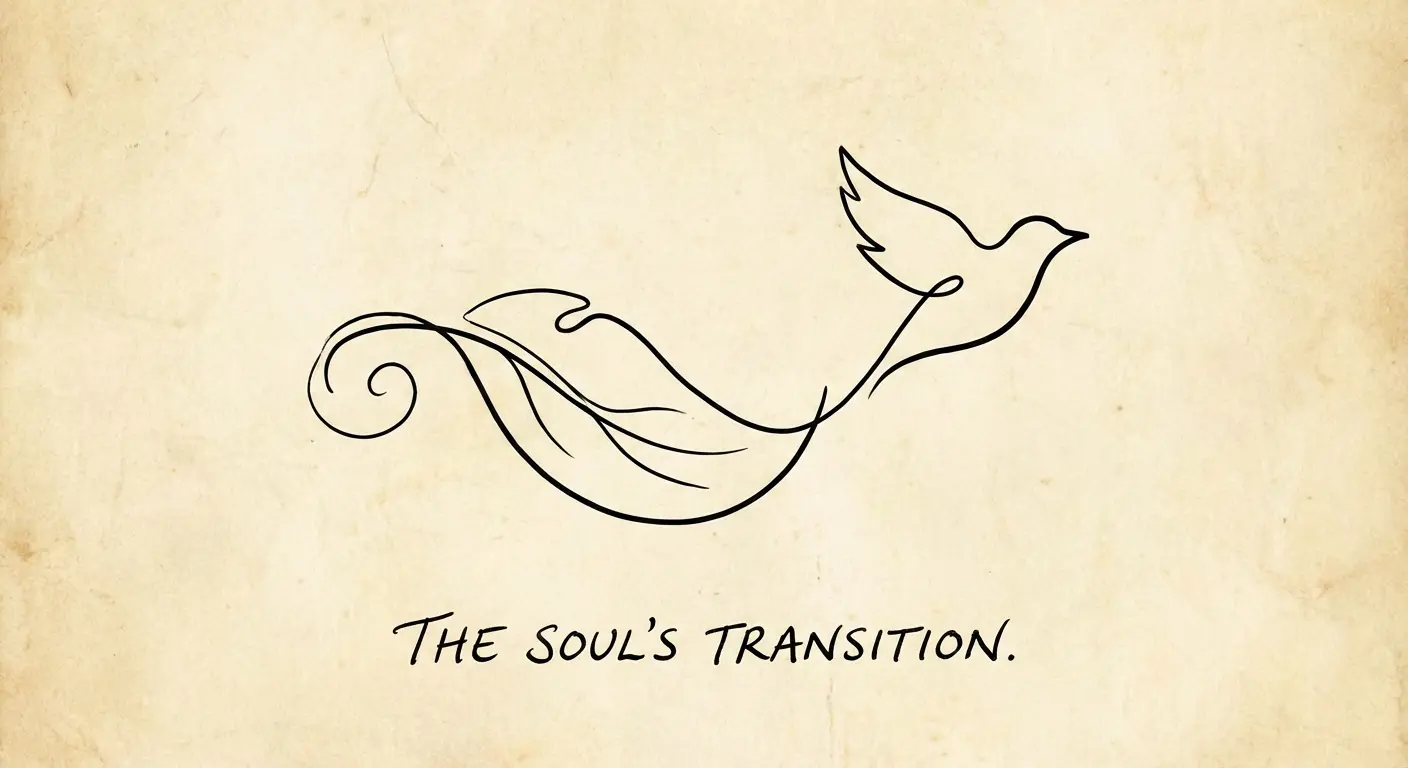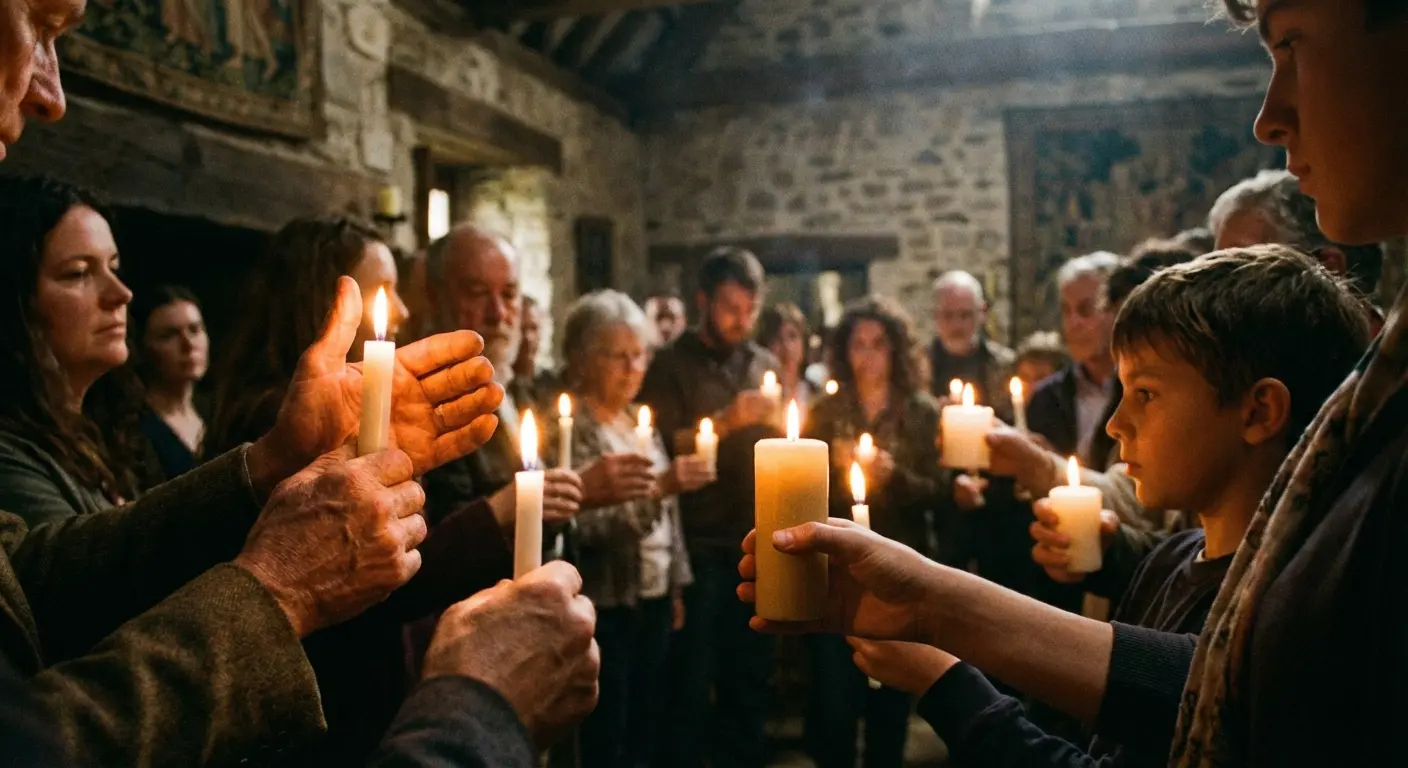Quick Resource
Eulogy Generator – A supportive writing tool that helps you turn short poems, memories, and emotions into a meaningful tribute when your mind feels foggy and words won’t come.
TL;DR
- Less is often more. Short poems can handle the heavy emotional lifting when you don’t have the energy for a long speech.
- They fit anywhere. Whether it’s a program, a toast, or a headstone, short verses are incredibly versatile.
- Tradition meets personality. We are moving away from stiff classics toward personalized, honest tributes.
- Style matters. From rhyming verses to nature-focused haikus, the style should match the person you lost.
- You don’t have to do it alone. Tools like Eulogy Generator can help unblock your creativity during a difficult time.
Why Short Poems Resonate So Deeply
When Words Fail Us
Grief has a way of causing brain fog. When you are in the thick of it, trying to articulate exactly what a person meant to you feels impossible. This is where short funeral poems really shine. They don’t ask you to deliver a twenty-minute oration. Instead, they act as a container for all those big, messy feelings.
There is something about brevity that sticks with us. Whether you are reading it at the graveside or printing it on the back of a program, a short verse often hits harder than a long speech. It’s interesting to look at the history of the poems we cling to. Take “Do Not Stand at My Grave and Weep.” It’s everywhere now, but “her authorship was not officially confirmed until 1988.” It just goes to show that the feeling behind the words matters infinitely more than the pedigree of the author.
When grief makes it hard to find words, the Eulogy Generator can help you get started.

Connection Through Simplicity
Have you ever sat through a service where someone tried to say too much, and the message got lost? Short poems strip away the noise. They distill love and loss into a few potent lines. For the people sitting in the pews (or the folding chairs), a few lines of poetry can cut straight to the heart without emotionally overloading them.
If you’re trying to say a lot with very little, the Eulogy Generator can help shape those thoughts.
The Healing Power of Minimalism
Grief is raw, and sometimes the best way to mirror that is with simple language. You don’t need a literature degree to understand the weight of a four-line verse. It’s accessible. It’s understandable. It allows everyone in the room to feel the same thing at the same time.

Versatility in Funeral Settings
One of the practical benefits of short poems is that they fit almost anywhere. They can be a breather in the middle of a heavy eulogy, a footer on a prayer card, or a final sign-off.
A Moment to Breathe
If you are giving a eulogy, reading a poem gives you a physical and emotional break. It allows the audience to catch their breath, and it gives you a second to collect yourself if you’re choking up.
Keepsakes That Last
Printed programs are often the only thing people take home with them. Because space is limited, short poems are perfect here. Devlin Funeral Home notes that “The most common options include folded cards, flat cards, and bookmark-style cards.” People tend to keep these for years, tucking them into Bibles or putting them on the fridge. A short poem makes that keepsake worth holding onto.
| Where to put it | Best Style | Why it works |
|---|---|---|
| Folded Memorial Cards | Medium-length (8-12 lines) | There’s enough room here for a photo and a nice verse side-by-side. |
| Bookmark Keepsakes | Short / Haiku (3-5 lines) | Short and sweet—something people will see every time they open a book. |
| The Eulogy | Rhyming or Free Verse | Great for ending a speech or providing a rhythmic pause. |
| Headstone/Urn | Minimalist / Epigraph | You have limited space, so every word needs to count. |
Not sure how to adapt words for different settings? Try the Eulogy Generator.
Universal Feelings
The pain of saying goodbye is perhaps the most universal human experience. A good poem bridges gaps between cultures and backgrounds. It reminds us that we aren’t the first to feel this loss, and we won’t be the last.

From Classics to Modern Tributes
The Old Standards
For a long time, funeral readings came strictly from religious texts or heavy, classical literature. These works focused on eternity and the soul. Interestingly, people have always wanted these tributes to look beautiful. The University of St Andrews found “thousands of unique early printed wedding and funeral poems from Sweden (some printed in gold or red ink).” It seems the desire to make a tribute look as good as it sounds has been around for centuries.
Classics That Still Work
There is a reason we keep going back to the classics. If you look at famous eulogy poems, you’ll see Dylan Thomas’s “Do Not Go Gentle into That Good Night” or Tennyson’s “Crossing the Bar.” They remain popular because they articulate feelings of hope and farewell better than most of us can on our own.

The Shift to Personalization
Lately, though, there has been a shift. We are moving away from stiff formality. Families want tributes that sound like the person they lost, not a textbook. We’re seeing more humor, more inside jokes, and more colloquial language.
To create something personal instead of generic, start with the Eulogy Generator.
Making it Personal
If the deceased was a jokester, a somber poem might feel wrong. Incorporating funny eulogy poems can actually be a huge relief to a grieving room. It honors their spirit. Even “modern classics” are relatively new; the popular poem “She Is Gone” “is based on a short prose poem written by English poet David Harkins, in 1982.” It feels timeless, but it’s actually quite modern, which is why the language feels so relatable.
Breaking the Rules with Free Verse
Free verse is great because you don’t have to worry about rhyming “love” with “dove.” It allows you to speak plainly and honestly about a unique life without being constrained by structure.

Technology Helping Tradition
It’s also worth noting that we have help now. AI tools like Eulogy Generator can act as a sounding board. When you are staring at a blank page and crying, having a tool that gives you a starting point can be a lifesaver.
Finding the Right Style for You
The Comfort of Rhyme
There is something soothing about a rhyme. It brings rhythm and structure to a situation that feels chaotic. It’s predictable in a good way. When our world is turned upside down, that simple cadence can be very grounding.
When Rhythm Helps
W.H. Auden’s “Funeral Blues” is a prime example. The “final version has four stanzas and was published in The Year’s Poetry in 1938.” It’s structured, it rhymes, and it hits like a ton of bricks. It proves that structure doesn’t mean a lack of emotion.

Speaking Plainly (Free Verse)
Sometimes you just want to talk. Free verse is perfect for informal gatherings or scattering ashes. It lets you focus on the story rather than the syllable count.
Less is More (Haiku)
Haikus and minimalist poems are powerful because they leave things unsaid. They often focus on nature, which is a gentle way to talk about life and death without being too blunt.
A Simple Haiku:
Golden leaf falls down,
Resting on the quiet earth,
Peace in winter’s sleep.
Nature as a Metaphor
Nature imagery is a staple of uplifting funeral poems. It reminds us that seasons change and life cycles continue. It’s a gentle, comforting way to look at loss.

Faith and Spirit
For many, comfort comes from faith. Traditional blessings, like Irish eulogy poems, mix spirituality with a sense of warmth and home. They offer a framework for understanding loss that goes beyond the here and now.
How to Choose (or Write) the Perfect Verse
Making It Theirs
The best poem is one that feels like it belongs to the person who died. Don’t be afraid to tweak an existing poem. Change the pronouns. Add a line about their love for gardening or their terrible taste in music. Make it real.
Quick Personalization Checklist
- [ ] What did they love? Gardening, jazz, quiet mornings?
- [ ] What’s the vibe? Are we celebrating a long life or mourning a tragedy?
- [ ] Rhyme or Real Talk? Do they need structure or free flow?
- [ ] Pronouns: Make sure the “He/She/They” matches.
- [ ] The Signature Quirk: Add that one thing only they did (e.g., “And how he loved his Sunday coffee”).
If personalizing a poem feels overwhelming, the Eulogy Generator can guide you through it.
Using Their Words
If they had a catchphrase or a favorite saying, put it in the poem. It creates an instant connection with everyone in the room who knows that phrase.
Reading the Room
You have to match the poem to the audience. A raucous, funny poem might not land well at a strictly formal religious service, just as a heavy, archaic poem might kill the mood at a “Celebration of Life” party.
| The Vibe | Who’s There? | What Works? |
|---|---|---|
| Solemn & Traditional | Church service, older relatives. | Classic Rhymes (Tennyson) or Scripture. |
| Uplifting & Light | Celebration of Life, friends, casual. | Free Verse or even a Limerick. |
| Reflective & Quiet | Small family gathering, graveside. | Haiku or Nature Poetry. |
| Raw & Real | Close partner or parent loss. | Modern Prose (e.g., “She Is Gone”). |
A Note on Humor
Humor is a great tension breaker, but use it wisely. A little chuckle is healing; a roast might be too much. Trust your gut.

Getting Unstuck
If you are staring at the screen and nothing is coming to you, that is normal. Tools like Eulogy Generator can help prompt you. It’s not about letting a machine write it for you; it’s about getting a nudge in the right direction.
When the page stays blank, the Eulogy Generator can help turn feelings into words.
Getting a Little Help When You’re Stuck
How Eulogy Generator Can Help
Sometimes you just need a framework. Whether you need specific verses or general guidance on eulogy poems, using a generator can streamline the process. It helps you organize your thoughts so you can focus on the feelings rather than the grammar.
Weaving it In
The goal is to make the poem feel natural, not tacked on. It should flow with your story.
Example:
You say: “Dad was a quiet guy, but he loved the ocean.”
The Poem: “As the poet says, ‘The tide rises, the tide falls…'”
The Connection: “Just like those tides, Dad was always there, consistent and strong…”
Brainstorming Partner
Think of the tool as a brainstorming partner. It asks the questions you might not think to ask yourself when you’re grieving.

Beating Writer’s Block
Writer’s block is bad enough on a normal day. When you are grieving, it’s paralyzing. Eulogy Generator helps break that paralysis by giving you options to choose from.
From Input to Verse:
You type: “My grandmother loved baking. She was strict but loved us hard.”
Idea: “Hands dusted with flour, heart made of gold / A love that was stern, a story untold / The oven is cold now, the kitchen is still / But the warmth of her memory, our hearts will fill.”

Final Thoughts
Short funeral poems are a beautiful way to say a lot without saying much. They offer a bit of art and a lot of heart in a small package. Whether you write something from scratch, borrow a classic, or use a tool like Eulogy Generator to help you piece it together, the most important thing is authenticity. If it comes from a place of love, you can’t get it wrong.


